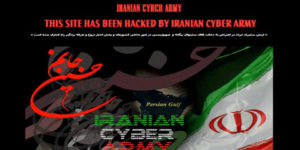 The Iranian regime seeks to expand its Islamic revolution globally and continues its push in Latin America. As part of that strategy, it is promoting the memoirs of its leaders to engage local actors, Washington-based nongovernmental organization Middle East Media Research Institute (MEMRI) indicated in a report.
The Iranian regime seeks to expand its Islamic revolution globally and continues its push in Latin America. As part of that strategy, it is promoting the memoirs of its leaders to engage local actors, Washington-based nongovernmental organization Middle East Media Research Institute (MEMRI) indicated in a report.
“For decades, Iran has had a plan in place to infiltrate Latin America, to expand radical Islam and prepare terrorist cells,” Jorge Serrano, a security expert and member of the advisory team of Peru’s Congressional Intelligence Commission, told Diálogo on September 16. “Promoting their culture and radical literature is part of this plan.”
“It is essential to disrupt and hinder the expansion of Iranian influence in the region,” the Cambridge, England-based Manara Magazine reported. “This means putting an end to the use of cultural, educational, and religious centers to spread their ideology and expand their criminal networks.”
According to “blockbuster reporting’ in Semafor and Iran International, the Iran Experts Initiative was a high-level informal influence operation, involving a handful of scholars of Iranian descent, that was conceived and manipulated by the Iranian regime, The New York Times’s Bret Stephens reports.
The revelations “paint a picture of the subtle ways the Iranian regime was able to use a group of influential intellectuals, hungry to maintain access to high-level Iranian officials, that quickly turned into opportunities for Iranian manipulation,” he writes.
 Iran is a regime whose foreign intelligence services are using generative AI to boost their influence operations, analyst Marietje Schaake writes for The Financial Times. Her Stanford colleague, Alex Stamos, warns that: “What once took a team of 20 to 40 people working out of [Russia or Iran] to produce 100,000 pieces can now be done by one person using open-source gen AI”.
Iran is a regime whose foreign intelligence services are using generative AI to boost their influence operations, analyst Marietje Schaake writes for The Financial Times. Her Stanford colleague, Alex Stamos, warns that: “What once took a team of 20 to 40 people working out of [Russia or Iran] to produce 100,000 pieces can now be done by one person using open-source gen AI”.
Iran continues to be a significant threat actor, and it is now supplementing its traditional cyberattacks with a new playbook, leveraging cyber-enabled influence operations (IO) to achieve its geopolitical aims, according to a recent Microsoft Threat Intelligence report
- Iranian cyber actors have been at the forefront of cyber-enabled IO, in which they combine offensive cyber operations with multi-pronged influence operations to fuel geopolitical change in alignment with the regime’s objectives….
- Iran has also adopted cyber-enabled IO to undercut the momentum of nationwide protests by leaking information that aims to embarrass prominent regime opposition figures or to expose their “corrupt” relationships.
Most of these operations have a predictable playbook, in which Iran uses a cyber persona to publicize and exaggerate a low-sophistication cyberattack before seemingly unassociated inauthentic online personas amplify and often further hype the impact of the attacks, using the language of the target audience, notes Clint Watts, General Manager of the Microsoft Threat Analysis Center. New Iranian influence techniques include their use of SMS messaging and victim impersonation to enhance the effectiveness of their amplification.
On September 19, Roya Hakakian, Enes Kanter Freedom, and Peter Skerry joined American Purpose and D.C. Public Libraries in the latest of their joint salons to discuss immigration and human rights.
Iran Seeks to Spread Its Radical Ideology in Latin America https://t.co/IakoBn3mKQ
— Democracy Digest (@demdigest) October 4, 2023







